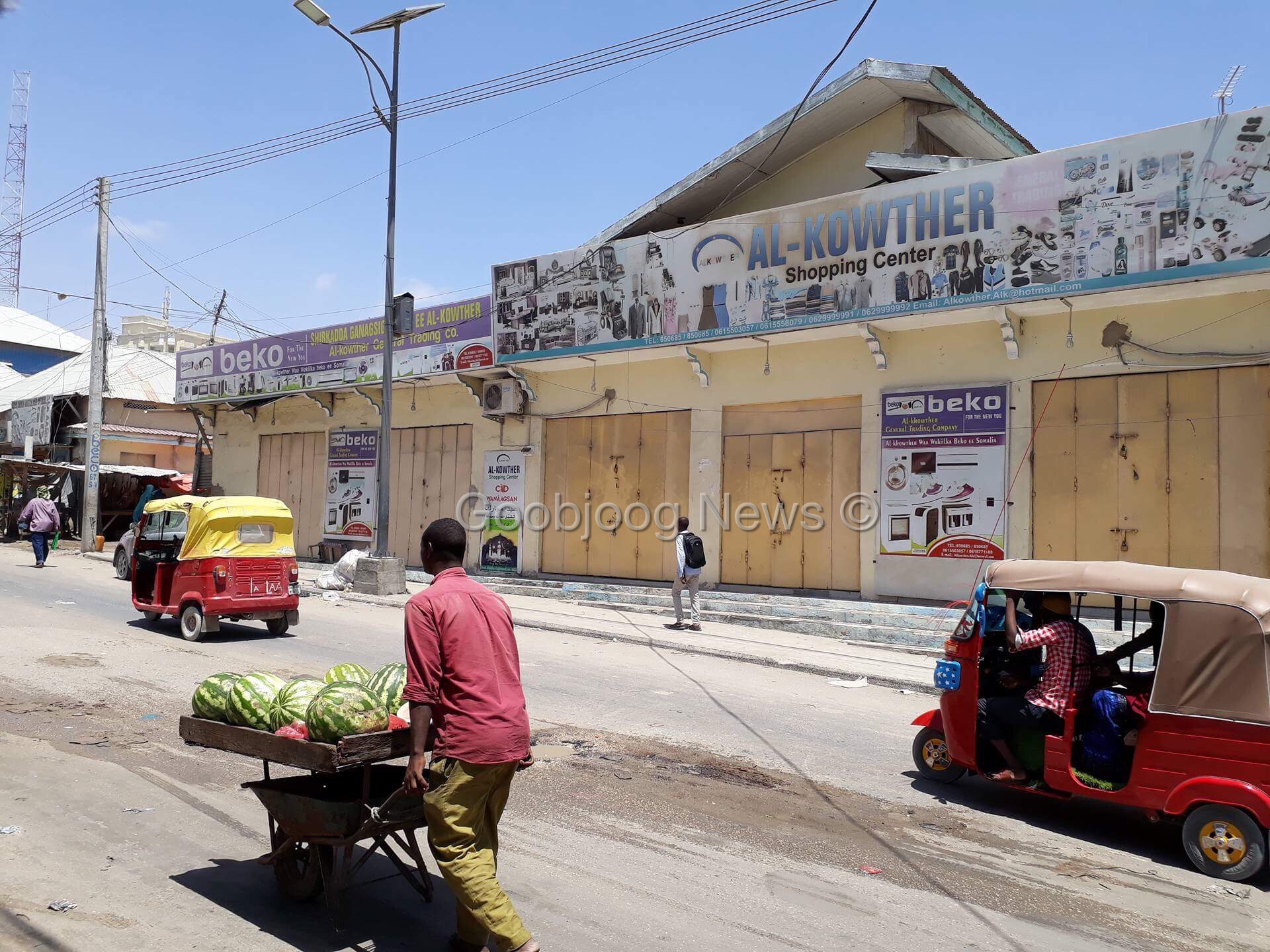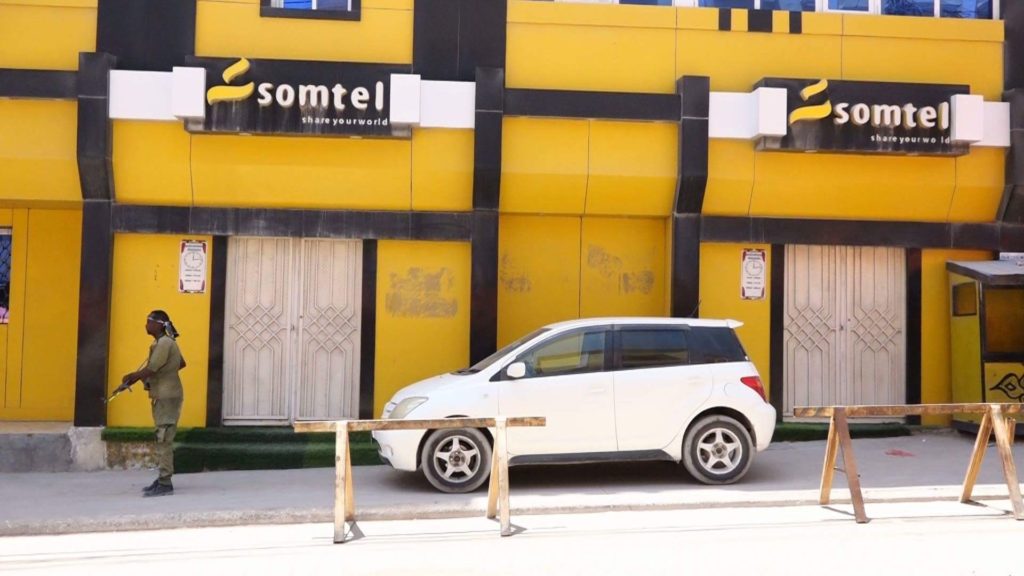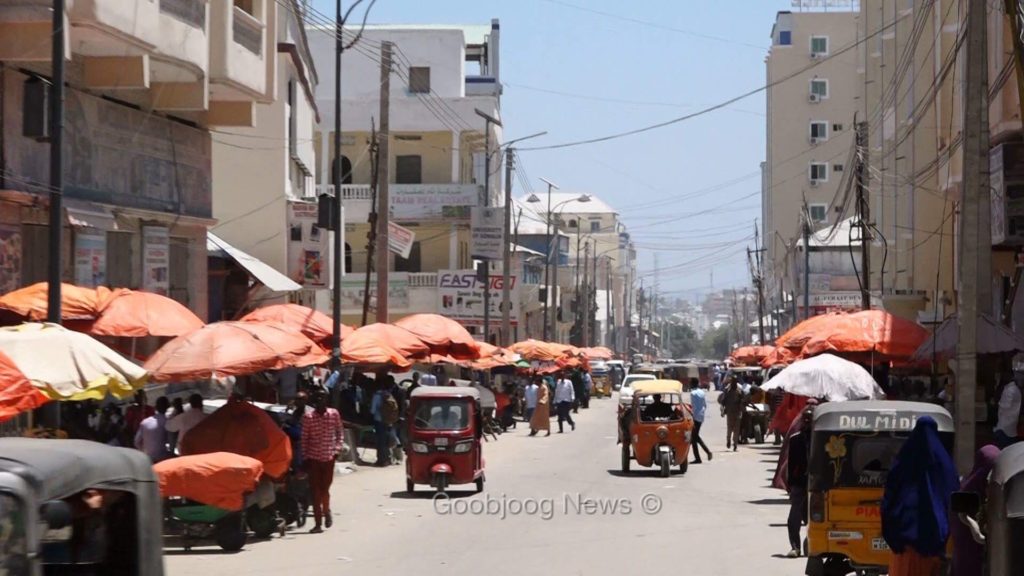Bakaro market closed as traders protest new government tax

Traders in the country’s largest market, Bakaro today boycotted business lamenting the introduction of a 5% sales tax by the government terming it as punitive but the government has maintained payment of taxes is not optional.
Goobjoog News correspondent in Bakaro market Ali Mumin said the market was largely deserted in the first day of the strike as traders pledged not to turn up until the government addresses their concerns. “All shops remained closed in Bakaro which is the largest market in the country. Only small scale merchants hawking on the street ways were in business.”
Abdullahi Abubakar one of the traders in the often busy market told Goobjoog News the shops will remain closed for as long as the government does not deal with their grievances.
“The ministry of finance has to give us answers to all these problems. Until this tax issue is solved, our shops will remain closed,” said Abubakar. We submitted our grievances to the government-,” said Abdullahi Abubakar.
The government recently introduced a 5% sales tax on imports to be paid upfront as it seeks to boost domestic revenues in a bid to finance its national budget and cut down over-reliance on donor funding. However traders are up in arms complaining the taxes were adversely affecting their businesses. It also imposed a 5% value added tax for the hotel industry.

Most of the traders in Bakaro market are retailers and depend on importers for goods from foreign markets but the importers have declined to pay the tax forcing the goods to be withheld at the port, said Mumin.
“We have imported goods from the port and we cannot get them because of the taxes the government has imposed on us,” Shariff Abdullahi an importer told journalists.
Finance Minister Abdirahman Beileh has warned traders that tax payment is not negotiable as it was necessary for the government to run and provide services.
“Today I clarified the purpose of the Sales Tax and the importance of paying legally mandated taxes to the Somali people,” Beileh said last week in a media interviews. “The payment, collection and budgeted utilisation of these funds is a must for Somali development. We must finance our future. This is the bottom line.”
Parliament passed a $274million national budget in December with a 43% ($118.6 million) deficit which it hopes would be financed through donor support and domestic borrowing. Finance Minister factored in a $62.4 expected bilateral donor support from Turkey, Saudi Arabia and Qatar.
The World Bank in its second Economic Update report last year noted domestic revenue was still way below minimum threshold subjecting the country to over-reliance on foreign funding. It called for tax reforms to boost domestic revenue collection failure to which the country will remain ‘in a fiscal trap’.

The Bank proposed a raft of tax measures among them a 5 percent tax on the sales of goods and services identified in the Appropriation Act within the short term (2 years). Such goods would include Petroleum and Its Products, Hotels, Mineral Water, Textiles and Clothing, Electronic Materials, and Household Materials. The global lender also advised the government to withhold the bulk of the sales tax at customs in addition to a uniform ad valorem (percentage) rate of 5–8 tax imports.
The government has not responded to the boycott which traders said will continue tomorrow.